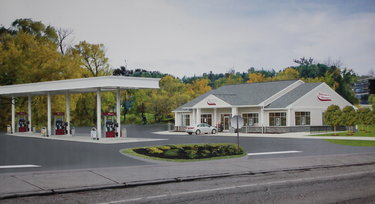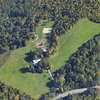Stewart’s Shops appeals decision in Voorheesville lawsuit
VOORHEESVILLE — Stewart’s Shops has asked an appeals court to overturn the ruling of a judge in a first-of-its-kind lawsuit the company brought against the village of Voorheesville.
But the appeal, filed in January, will soon be tossed unless Stewart’s files its appeal brief with the court — the company has until July 14 to file the brief.
Erica Komoroske, director of public affairs for Stewart’s, said she would respond to The Enterprise when she knew more.
The company filed its lawsuit against the village in September 2019, claiming there had been a “targeted effort to prevent Stewart’s” from building a new shop on property it owns at 112 Maple Ave., site of the now-closed Smith’s Tavern.
In its Jan. 14 pre-calendar statement filed with Appellate Division of the state’s Supreme Court, Third Department — the middle level of the state’s three-tiered court system — Stewart’s says it would seek to appeal “various causes of action,” including the “propriety” of Voorheesville’s comprehensive plan and the “resulting” zoning adopted by village.
Stewart’s was seeking to have the village’s zoning code, adopted in May 2019, declared null and void “on the ground that it fails to conform to a properly promulgated Comprehensive Plan,” the company’s original complaint stated, and it was also asking that the zoning district created by the new code around 112 Maple Ave. be declared a case of illegal spot zoning.
The comprehensive plan, once adopted, in effect did not allow Stewart’s to build a gas station and convenience store on Maple Avenue.
The comprehensive plan said that, in the Creekside Commercial District, which includes the now-closed Smith’s Tavern, “no ‘formula [chain] businesses’ should be allowed.” The plan also said that “petroleum dispensing” wasn’t consistent with the district.
Stewart’s contended that Voorheesville’s then-new zoning law had violated New York State Village Law, constituted spot zoning, was “otherwise arbitrary, capricious,” exceeded the village’s scope of power, was “unconstitutional, confiscatory, and without foundation in law or fact,” and should be have been declared null and void.
The judge in the case, James Ferreira, in his November 2020 decision stated that the village’s zoning code had been “reasonably related to legitimate government interests,” and that Stewart’s had, in its court filings, “failed to establish that the Zoning Code is arbitrary, capricious, unconstitutional or unlawful.”
The company also failed “to identify a single procedural error” made by Voorheesville that would place it in violation of the state’s Village Law, Ferreira wrote.
And the rezone, Ferreira concluded, was also not a case of spot zoning, because, when the village adopted new zoning, it “changed the zoning of numerous properties in the Village, including all of those in the Creekside Commercial District,” which runs along the Vly Creek and includes 112 Maple Ave.
“Thus, it cannot be said that [Stewart’s] parcel of land was ‘singled out for a use classification totally different from that of the surrounding area’ for purposes of spot zoning,” Ferreira wrote in his decision.


